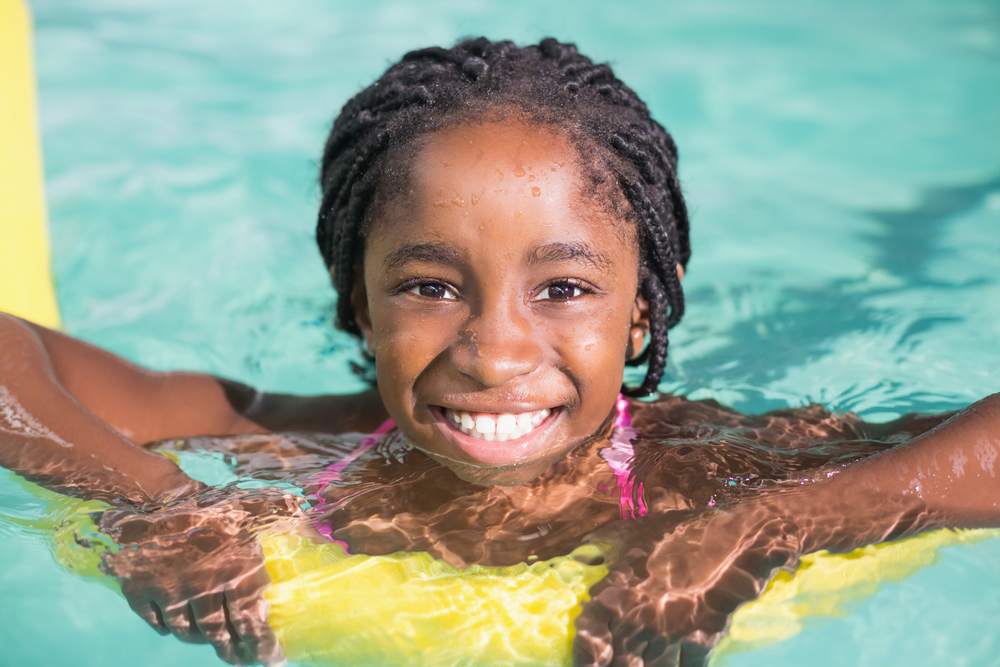 School’s out for the summer, which means families are gearing up to spend more time by the pool, at the beach, and on the river. Because Jacksonville offers more beachfront than any other city in Florida and features the longest stretch of the St. Johns River running through St. Johns and Duval counties, the First Coast YMCA wants to ensure both adults and children practice water safety this summer. Drownings can take place nearly anywhere, and it is the leading cause of death for children between ages 1 and 4.
School’s out for the summer, which means families are gearing up to spend more time by the pool, at the beach, and on the river. Because Jacksonville offers more beachfront than any other city in Florida and features the longest stretch of the St. Johns River running through St. Johns and Duval counties, the First Coast YMCA wants to ensure both adults and children practice water safety this summer. Drownings can take place nearly anywhere, and it is the leading cause of death for children between ages 1 and 4.
Unfortunately, we’ve already heard about fatal drowning incidents on the First Coast this summer, which is why we want to provide parents and caregivers with as much information as possible to keep you and your child knowledgeable around water this summer.
Here are a few tips to keep your loved ones safe!
Teach Them Early
The earlier you can get your child comfortable in the water and swimming, the better. Parents can sign their child up for swim lessons as early as 6
months old. The YMCA’s Swim Starters class introduces infants as young as 6 months to the water to build their comfort level. The YMCA teaches key skill sequences to parents and kids that can be lifesaving. These include teaching children to “swim, float, swim” until they are able to reach a wall or the exit of the pool, and “jump-push-turn-grab” if they reach the bottom of the pool. These sequences are especially important in case a child becomes over-exhausted in the pool or in the event they unexpectedly fall in. The YMCA also offers Swim Basics and Strokes classes to develop basic water
skills and master stroke techniques.
Know Your Child’s Skill Level
Do not assume your child’s level of swimming each summer and know that it can change year to year. It’s important to test your child’s swimming skills with an expert before you allow them to swim. As a parent, this will give
you a stronger and more reliable understanding of your child’s ability in the water and determine how to further develop their skills.
Suit Up!
Make sure young children who cannot swim or are not strong swimmers always wear a life jacket and use proper water safety and flotation devices. These devices can double as both a fun water toy and a lifeline in the case of an emergency.
Maintain Supervision and Sightlines
It is important to educate your child early about water safety so they understand the dangers anytime they are near a standing body of water without proper supervision. With that being said, parents should always actively supervise children in and around the water. Pools should be secured with appropriate barriers at home, and children should always ask permission before entering the water. When at a community or public pool, maintain your children within your sightline as well as the certified lifeguards.
Find a Buddy
Use the buddy system! Make sure to designate swim buddies for children
visiting the beach, lake, or pool so they do not swim alone. For more information about the First Coast YMCA’s swimming programs, call (904) 265.1775 or contact your local Y.
About the Author
Delraye Norris is the First Coast YMCA Regional Aquatics Director.
 More about the Y: The Y is the leading nonprofit committed to strengthening community by connecting all people to their potential, purpose and each other. We’re here to help our neighbors focus on what matters most: their health, their family and friends, and their community.
More about the Y: The Y is the leading nonprofit committed to strengthening community by connecting all people to their potential, purpose and each other. We’re here to help our neighbors focus on what matters most: their health, their family and friends, and their community.
Taking care of our health is more important now than ever before. The Y offers programming and activities for all ages, interests and abilities including group exercise classes, chronic disease prevention, nutrition, swimming, basketball, pickleball, camp, before and afterschool child care, volunteer opportunities and so much more.
We believe in the ability to inspire a brighter tomorrow. Every day we set out to making a meaningful and measurable difference in the lives of others by focusing on three areas of impact:
Youth Development – Empowering young people to reach their full potential
Healthy Living – Improving individual and community well-being
Social Responsibility – Providing support and inspiring action in our communities
Together, we’re a better us. The Y isn’t a building. It is people from all backgrounds and from all walks of life who come together to improve their lives, nurture their families and strengthen their community, together. Join us!
















